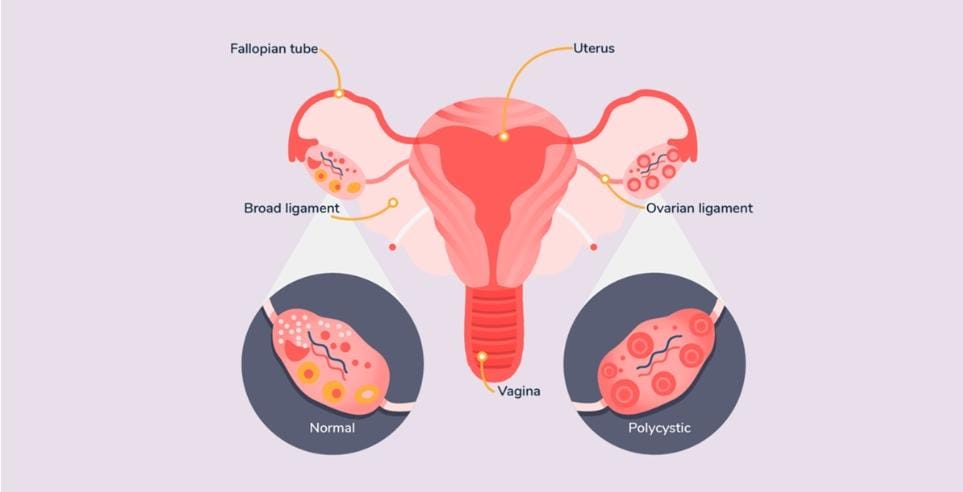
Contact Us
Online Appointments
- No exposure from potent chemicals.
- No withdrawal symptoms
- High efficacy rate
- Individualistic prescribing.
- Minimum dose.
- Rapid, gentle and permanent cure of disease.
- Holistic approach
- Painless process of treatment
- Availability of thousands of fully proved medicines on healthy human beings
- Economic medicines
Polycystic ovary syndrome (PCOS) Treatment & Management
Polycystic ovary syndrome (PCOS) is a hormonal disorder that affects people of reproductive age, particularly women. It is characterized by a range of symptoms, including irregular menstrual cycles, excess androgen levels, and polycystic ovaries. Treatment for PCOS aims to manage symptoms, regulate menstrual cycles, and address associated health concerns such as infertility and metabolic complications. Here are some common treatment options for PCOS:
-
Lifestyle Modifications: Lifestyle changes are often the first-line treatment for PCOS, particularly in overweight or obese individuals. These may include:
- Healthy Diet: Adopting a balanced diet rich in fruits, vegetables, whole grains, and lean proteins while limiting refined carbohydrates and sugars may help improve insulin resistance and regulate hormone levels.
- Regular Exercise: Engaging in regular physical activity can help improve insulin sensitivity, promote weight loss, and regulate menstrual cycles.
- Weight Management: Achieving and maintaining a healthy weight can help alleviate symptoms of PCOS, improve fertility outcomes, and reduce the risk of complications such as type 2 diabetes and cardiovascular disease.
-
Medications: Various medications may be prescribed to address specific symptoms of PCOS:
- Birth Control Pills: Oral contraceptives can regulate menstrual cycles, reduce androgen levels, and alleviate symptoms such as acne and hirsutism (excess hair growth).
- Anti-androgen Medications: Drugs such as spironolactone or finasteride may be used to reduce androgen levels and improve symptoms like acne and hirsutism.
- Metformin: This medication is commonly prescribed to improve insulin sensitivity and regulate menstrual cycles, especially in individuals with insulin resistance or prediabetes.
- Ovulation Induction: Fertility medications such as clomiphene citrate or letrozole may be prescribed to induce ovulation and improve the chances of pregnancy in women with PCOS who are trying to conceive.
-
Assisted Reproductive Technologies (ART): For individuals with PCOS who struggle with infertility, assisted reproductive technologies such as in vitro fertilization (IVF) or intrauterine insemination (IUI) may be recommended to achieve pregnancy.
-
Surgery: In some cases, surgical interventions may be considered for specific concerns related to PCOS:
- Ovarian Drilling: This laparoscopic surgical procedure involves making small punctures in the ovaries to reduce androgen production and restore ovulation in women with PCOS who have not responded to other treatments.
- Laser Hair Removal: For individuals with significant hirsutism, laser hair removal or electrolysis may be options for long-term hair reduction.
-
Management of Associated Conditions: Since PCOS is associated with an increased risk of certain health conditions such as type 2 diabetes, cardiovascular disease, and endometrial cancer, it's essential to address these concerns through appropriate screening, monitoring, and management strategies.
Treatment for PCOS is often individualized based on the specific symptoms, goals, and preferences of the patient. A multidisciplinary approach involving gynecologists, endocrinologists, dietitians, and other healthcare professionals may be beneficial in providing comprehensive care for individuals with PCOS.


